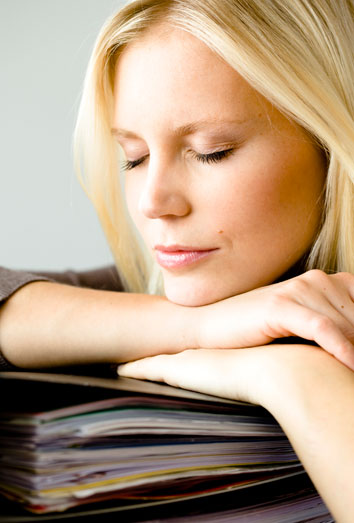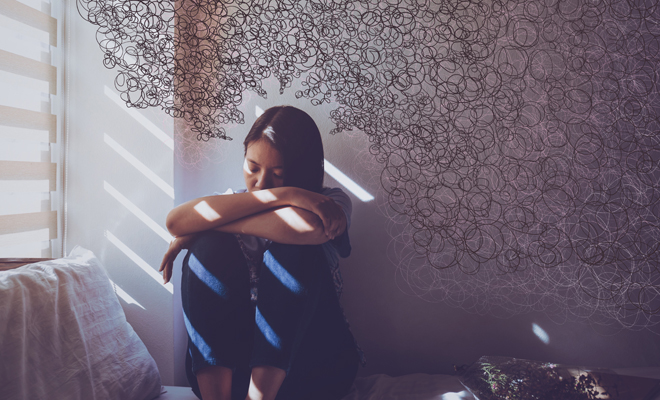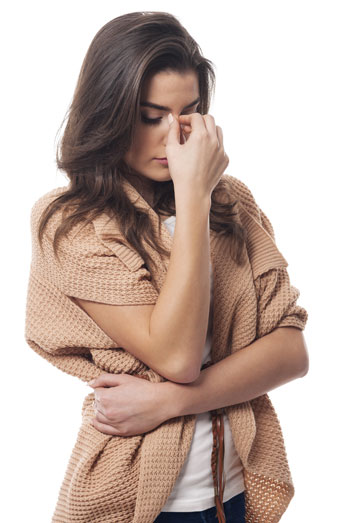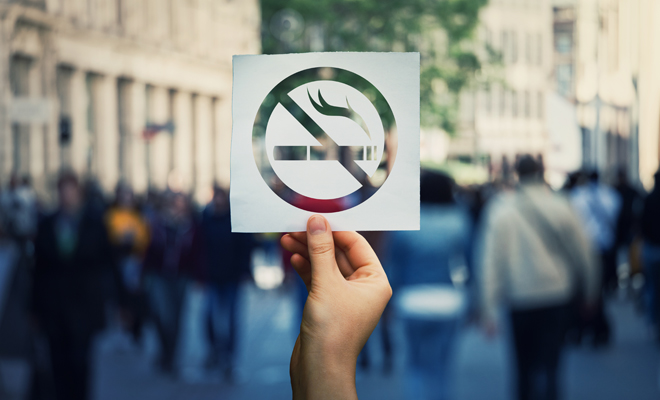Anxiety disorders produce nervousness, agitation, restlessness. It is frequent that you cannot stay still, that you have to get up continuously, that you have the need to do something, to be on the move. But that hyperactivity is just one of the many manifestations of anxiety. On the opposite side, but just as frequent, is fatigue, tiredness, the inability to move a muscle, not even the mind. How to avoid tiredness due to anxiety?

The tiredness of anxiety
Although tiredness and fatigue are more associated with other types of emotional disorders such as depression , they are also very frequent in cases of anxiety. You don’t feel like getting up, or doing anything, just waiting for the restlessness to pass. But it is that you do not have strength either, because the muscles do not respond well and they hurt. Fatigue invades your entire body, you exhaust yourself just thinking about the day that awaits you. It really exhausts you to live.
This tiredness is a symptom of anxiety that can have consequences in many areas of your life. Your social life can be affected because you don’t feel like going out. While your work life can suffer because that fatigue leads to a mental block, a total inability to concentrate, much less to make decisions.
The fatigue that anxiety generates is a mental fatigue, with all those worries that go around in your head forming a real mess, with those fears, that insecurity and that indecision. But it is also a physical fatigue produced by muscle tension and, above all, by insomnia. And we always insist that sleeping well is one of the best treatments for anxiety.
Avoid the fatigue of anxiety
Unfortunately we don’t have the magic formula to end the exhaustion you feel, we don’t even have the recipe for you to learn to manage anxiety from one day to the next. But we have some tricks that can help you to be calmer, more relaxed and, therefore, more rested.
The first step is sleep. Sleeping more and sleeping better is essential to start the day rested and to be able to put both body and mind to work. So go to all possible resources to ensure a good quality of sleep, from the relaxing bath, to aromatherapy in the room, through calming infusions. And leave the sleeping pills as the last option, but as an option after all.
A calmer and more restful life requires regular hours of work, food, rest and sleep. It also does not hurt to acquire healthy habits such as doing some exercise to relax muscle tension and prepare your body for rest. Although in any case, if the fatigue does not subside, it is advisable that you have an analysis to rule out any medical problem.






